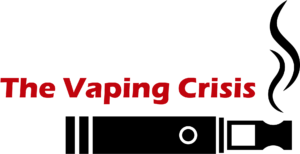Security labels, barcodes and microchips are among the measures vaporizer manufacturers are taking to differentiate their products from counterfeit knockoffs suspected to be behind more than 800 illnesses and 12 deaths tied to the nationwide vaping crisis.
Last week, California-based marijuana firm KushCo Holdings entered an exclusive distribution agreement with De La Rue, a provider of anti-counterfeiting and authentication solutions that prints more than 8 billion product authentication labels annually.
The partnership will provide companies with enhanced packaging with secure visual authentication technology using 3D photopolymer images, unique serialization, e-verification, label-tracking and data-capturing capabilities.
“This gives us the ability to track, the ability to authenticate and the ability to put brand recognition beyond the products,” Kovacevich said.
“This is like alcohol. If people are getting sick and dying from moonshine, they’re quickly going to say, ‘I want to go with authentic Jack Daniels or authentic Grey Goose.’”
Looking for solutions
A variety of other anti-counterfeiting solutions are available to vaporizer companies.
Denver-based Akerna, a regulatory compliance technology company in the cannabis space, and Boston-based Solo Sciences, which provides anti-counterfeiting technology, have joined forces to provide marijuana companies with a graphically secure mark that consumers can scan with an app on their phones.
Akerna’s MJ Platform and Solo Sciences’ Solo*Code are being integrated so that accurate information about the product’s life cycle is displayed.
“All of our seed-to-sale tracking data is available for a consumer to read before or after purchase,” said Jeanette Horton, Akerna’s vice president of marketing and communications.
“It will be up to the brand how much information they want to make available.”
Horton said it’s important that cannabis companies adopt technologies that can verify a product’s authenticity, so it’s crucial for them to be affordable and easy to implement.
Solo Sciences’ technology could replace the expensive seed-to-sale RFID tags cannabis companies are required to use. Companies buy the RFID tags up front and they sit around tying up capital until they’re placed on the package and sold, Horton said.
With the Akerna and Solo Sciences solution, an MJ business can have a lot on hand but not pay for them until they’re applied to the packaging, Horton explained.
Tighter auditing controls
Denver-based Gofire, a maker of plant-based medicine inhalers, has distanced itself from the word vaporizer because the device is not a combustion system.
The company identified problems with vaporizers five years ago, when it was developing its inhaler.
Gofire CEO Peter Calfee worried about heavy metals and thinning agents other companies use.
“The passion that drove the development of this product was fueled by the fear of the low-quality products,” Calfee said of Gofire inhalers.
“I’m a little frustrated with the industry – that it took multiple people dying and hundreds of people getting really sick before they started listening.”
Gofire cartridges have microchips tied to a third-party lab test result that shows consumers the Certificate of Analysis (COA) and tells consumers which batch of oil they came from.
“This allows us to really have tight controls from an auditing standpoint,” Calfee said.
“Consumers get exactly what they think they’re consuming.”
Calfee said eliminating vaporizers is not the answer because, other than injectibles, it’s the fastest way to get a drug into the body.
“What we need to be calling for is an improvement in the technology and auditing systems in the industry, as well as regulators,” he said.
More security features
Kristin Nevedal, founder and executive director of the California-based International Cannabis Farmers Association, said states should provide stamps to manufacturers of vaping products that are similar to those found on cigarette packages.
Security ink such as that used on currency also would ensure consumers know they’re buying an authentic product.
“They’re harder to counterfeit because there are security features built into them,” she said.
“The quickest way to manage the issue would be some sort of security-stickered, tamper-resistant seals that shows the county of origin.”
She also noted that part of the responsibility lies with consumers, who should only purchase cannabis products from licensed retailers rather than in the unregulated marketplace.
“There’s absolutely zero reason for a licensed retailer to have a nonlicensed product on their shelves,” she said.
“If consumers are choosing to purchase unregulated products with no tax stamp or government-issued seal, it’s indicative of a flaw in our cannabis programs. If we had a way to make an unregulated product not economically viable or attractive to the unregulated market, that would help to curb it.”
While news of illnesses and deaths could cause people to stop using vaporizers, it also could have a positive impact on the industry as consumers are driven to legal channels that sell authenticated products, KushCo’s Kovacevich said.
“This probably is going to benefit companies that play in the legal channels,” he noted.
“Their biggest competition is in the black market. Most companies are seeing that people will pay double the price rather than buy on the street corner. The market is reacting like it’s a negative, but for us it’s positive as people move into legal channels.”
For more of Marijuana Business Daily’s ongoing coverage of the vaping crisis, click here.
Margaret Jackson can be reached at margaretj@mjbizdaily.com





